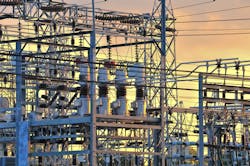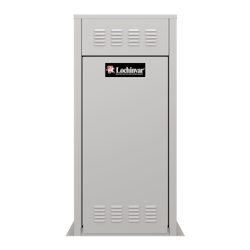One tactic in the fight to reduce greenhouse gas emissions has been to limit the use of fossil fuels. The push to adopt electric vehicles is one part of that approach. Another has been bans on natural gas, which range from banning the sale of natural gas-fired appliances to banning natural gas hookups in new construction.
Most of these bans have happened at the municipal level, with more than 76 US cities—mainly in California and the Northeast—passing such bans. In reaction some states—24 at last count—have passed legislation prohibiting such bans.
To discover what the push towards electrification might mean for those who specify, install and maintain boilers, we spoke with Dan Rettig, Senior Product Manager for Lochinvar, a leading water heating solutions provider based in Lebanon, TN.
* * *
CONTRACTOR: Where do you think electrification is going? Do you think it's going to be a rapid adoption, a gradual adoption? Is it going to be based on geography?
Dan Rettig: If you can read that crystal ball, I sure would like you to let me know! As an organization, we're looking at what's going on in the different states, even within certain municipalities. But we look at it as a business opportunity. We feel that we're the leader in high efficiency gas products, so this is a great opportunity for us to transition our expertise and high efficiency to whatever the future holds. On the electrification/decarbonization side right now a lot of the emphasis is on heat pumps, so we're trying to prepare ourselves, make sure we have a product portfolio no matter where the market goes.
As for the pace of change, we’ve had some conversations with clients on the west coast. There’s been a change in emphasis from the water heating to the hydronics side over the past seven years, and that's picked up pretty drastically. It feels like that pace is quicker on the hydronics side than it was on the water heating side… All I can say is we see those numbers and the demand increase; quarter over quarter you see those numbers increase.
CONTRACTOR: One criticism of electrification is that it's just passing the buck; that these appliances are getting their electricity from a plant that might be coal-fired or oil-fired. Do you think that the push towards electrification can really deliver on carbon reduction targets?
Dan Rettig: If you look at the current state of our electrical grid, where we're getting that power from, we have a lot of opportunity to improve as a country. We need to be honest with ourselves, face the facts, and start the difficult conversations we need to have.
But if we wait until the grid's completely clean before we come out with the product offering then, as manufactuers, we're behind. Either way, somebody's going to be behind, either the manufacturers or the grid. So I think we'll get there and find out what that balance looks like at the end.
CONTRACTOR: Based on what you’re hearing from your customers, what are some of the concerns of people that are installing and maintaining electric boilers?
But really, we're heating water. If you’ve worked on a residential electric water heater—which is not super complicated—it's that same concept, but we'll say with a little more power behind it, more elements, but very similar in the way we would go about troubleshooting.
You’re going to have probably more integrated controls, some processing boards, but we have those on the high efficiency gas-fired boilers that they're troubleshooting today. The learning curve is probably not as large as they think. Just understanding, hey, it's not really that big a step up. The electric boiler should be in your wheelhouse.
For those who are interested we have in-house training at our facility in Lebanon, Tennessee. All those dates are on our website. We have our online platform, where people can watch videos. Now, I would never say, “Hey, watch this video with this volt meter and you're going to be a professional that can go troubleshoot these large electric boilers.” You definitely want to have somebody that's had some hands-on training. I can remember, back when I was installing, I started out working residential, and it was a significant amount of time before I felt comfortable working commercial.
CONTRACTOR: What do you think the future of electrification will look like?
Dan Rettig: So everybody knows, at Lochinvar we're fully invested in decarbonization, in electrification, and we’re trying to keep fully engaged in what's going on to make sure we have the right product offering. If you look at our distributors, it's like they're trying to figure out this future too. “Can I handle a heat pump?” Right? “Is this new thing in my wheelhouse?” So I think not only are the contractors trying to figure out what their future looks like, but at the distribution level, at the rep level, and even at the manufacturing level—I think we're all trying to find our place in what it looks like moving forward.
About the Author
Steve Spaulding
Editor-in-Chief - CONTRACTOR
Steve Spaulding is Editor-in-Chief for CONTRACTOR Magazine. He has been with the magazine since 1996, and has contributed to Radiant Living, NATE Magazine, and other Endeavor Media properties.

